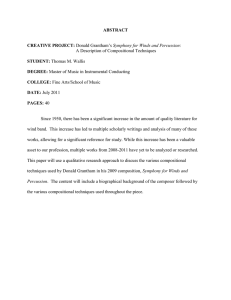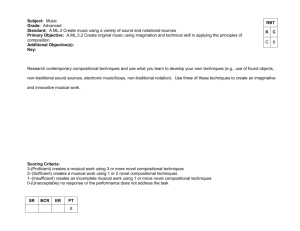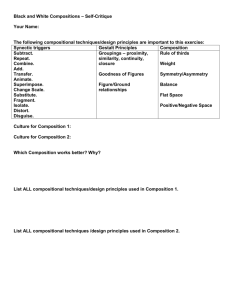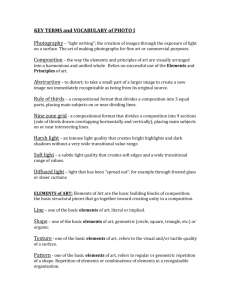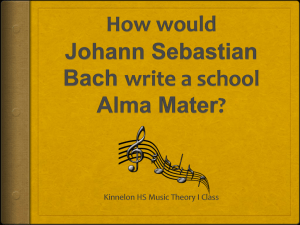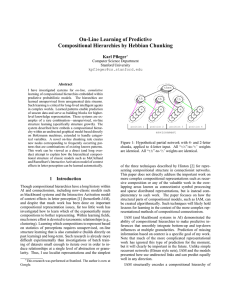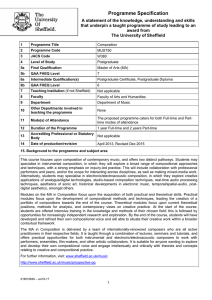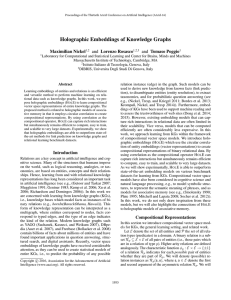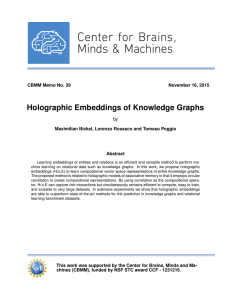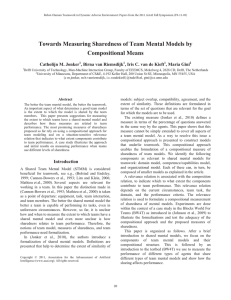Transitions from His Early Style to the Avant-Garde ABSTRACT
advertisement
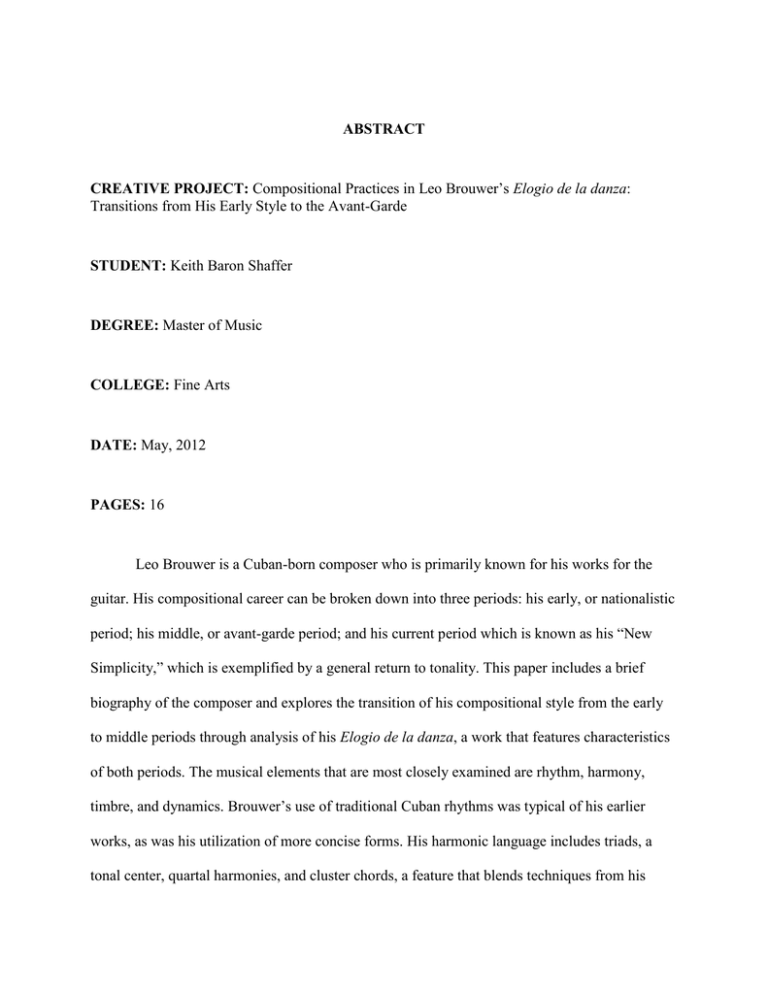
ABSTRACT CREATIVE PROJECT: Compositional Practices in Leo Brouwer’s Elogio de la danza: Transitions from His Early Style to the Avant-Garde STUDENT: Keith Baron Shaffer DEGREE: Master of Music COLLEGE: Fine Arts DATE: May, 2012 PAGES: 16 Leo Brouwer is a Cuban-born composer who is primarily known for his works for the guitar. His compositional career can be broken down into three periods: his early, or nationalistic period; his middle, or avant-garde period; and his current period which is known as his “New Simplicity,” which is exemplified by a general return to tonality. This paper includes a brief biography of the composer and explores the transition of his compositional style from the early to middle periods through analysis of his Elogio de la danza, a work that features characteristics of both periods. The musical elements that are most closely examined are rhythm, harmony, timbre, and dynamics. Brouwer’s use of traditional Cuban rhythms was typical of his earlier works, as was his utilization of more concise forms. His harmonic language includes triads, a tonal center, quartal harmonies, and cluster chords, a feature that blends techniques from his early and later compositional styles. Extremes in both timbre and dynamics are exemplary of his later works in that they are both structural components of the piece.
